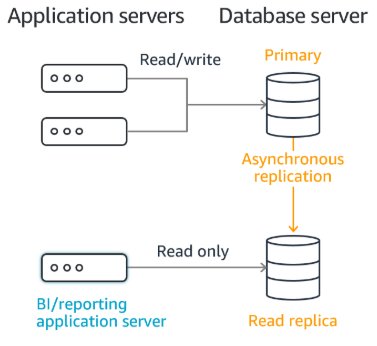The integration services described herein require additional one-time and/or annual fees. For more information, please contact us.
Even though the HCE comes with dozens of reports out of the box as well as a basic report building tool, we recognize that some organizations have very specific data collection and aggregation needs that can't be met with the existing reports. We also recognize that the larger hospitals have data warehouses for reporting and data analysis. For that reason, Dual Code's enterprise solution offers the ability for clients to connect their Business Intelligence tools such as Microsoft® Power BI® or Tableau® to their learning environment's private database.
As part of this service, Dual Code creates a second database instance using a snapshot of the source (e.g. "master") database. It then uses the engines' native asynchronous replication to update the read replica whenever there is a change to the source database. The read replica operates as a database instance that allows only read-only connections; applications can connect to a read replica just as they would to any database instance. This architecture provides enhanced performance and durability for the learning environment's database and makes it easy to elastically scale out beyond the capacity constraints of a single database instance for read-heavy database workloads.

The replica database is accessible to the client using an SQL user account that has limited, read-only privileges. For security reasons, each client connecting to the read-only database must have a unique username and password combination. We recommend that the password be rotated on a regular basis. The connection is also locked by our firewall to one or more IP addresses as specified by the client.
In addition to read-only access to select tables, Dual Code has developed a series of database views to make it easier for you to develop custom reports using your preferred BI application. The schema of that database is defined from within the learning environment itself. You can view it as an administrator by going to Site Administration > Reports > Database Schema.
Related Articles
